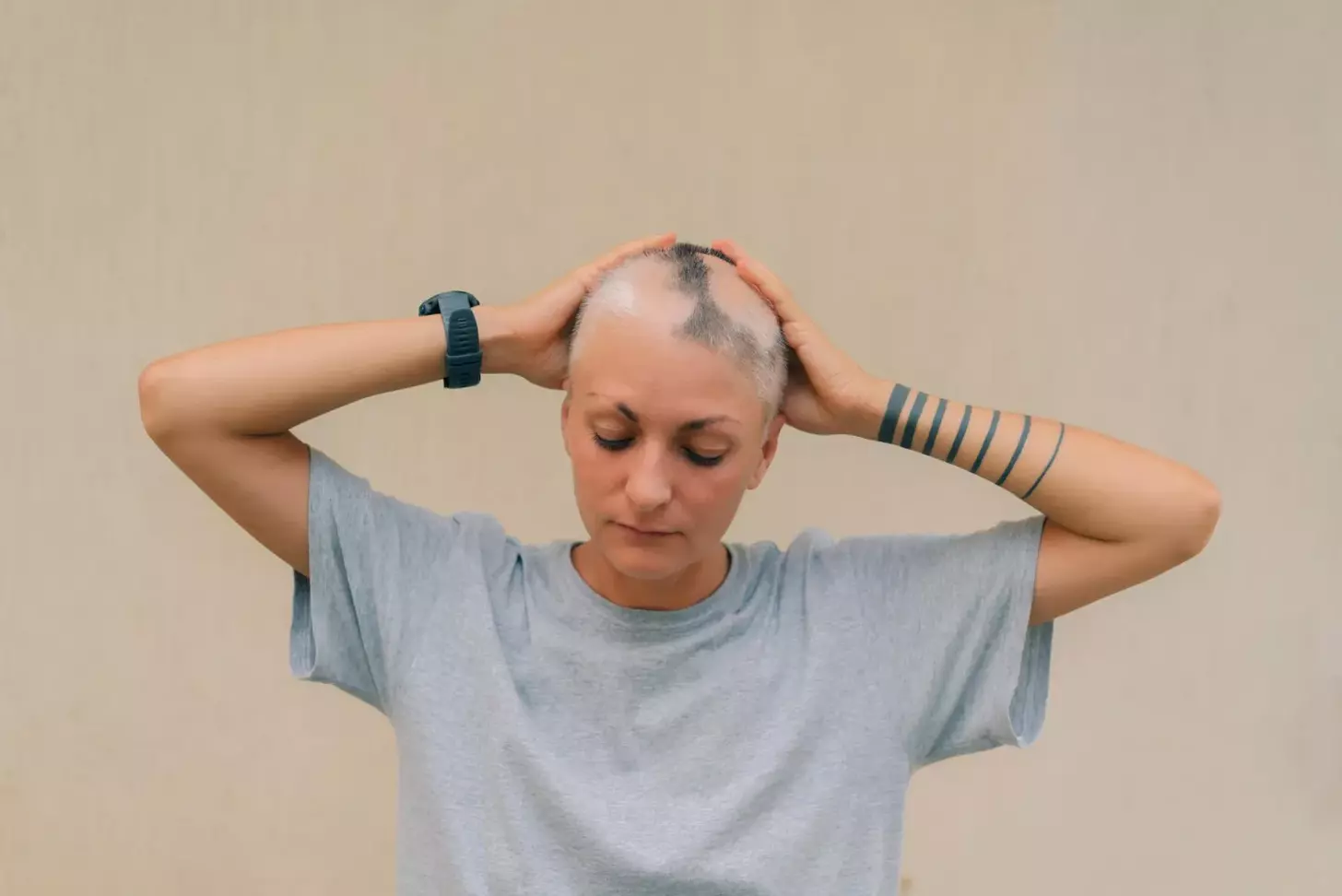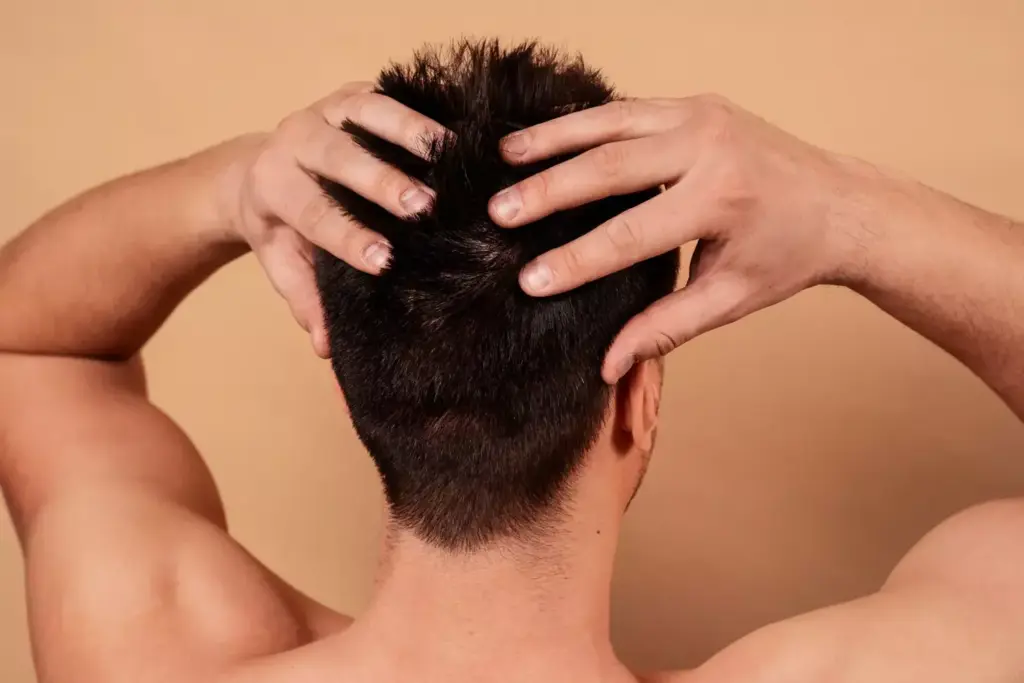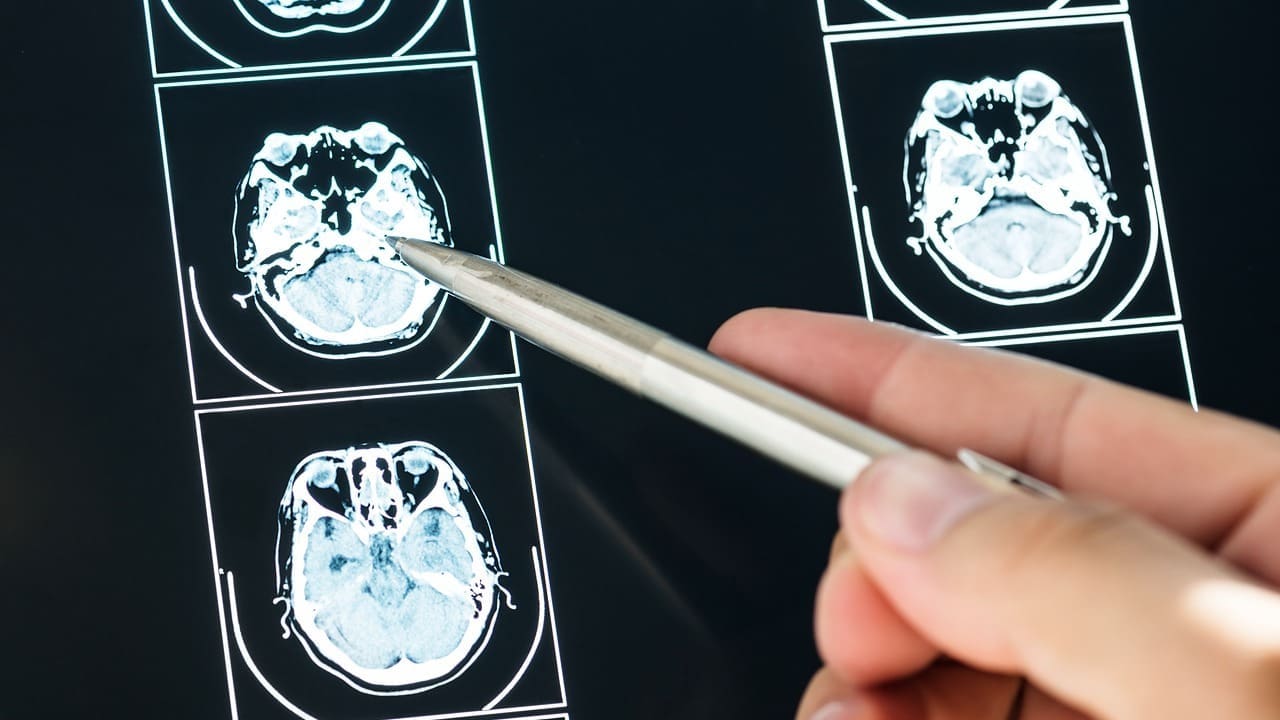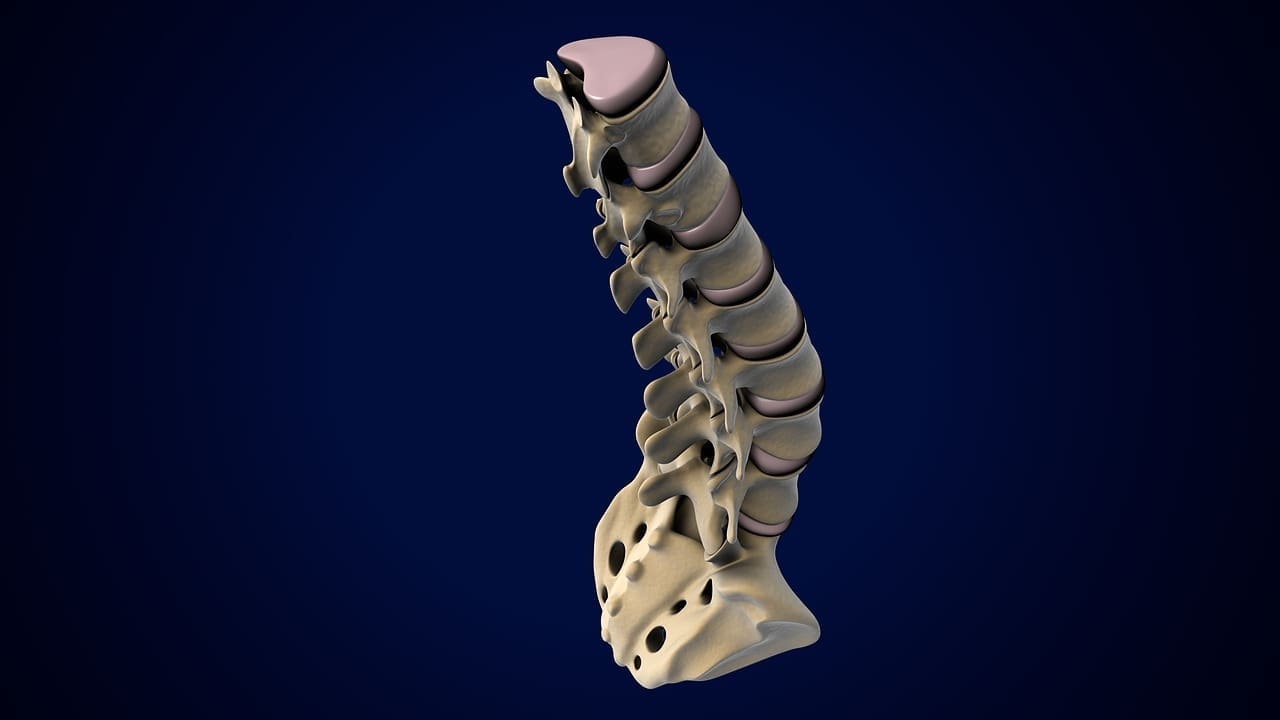Last Updated on November 26, 2025 by Bilal Hasdemir

Chemotherapy is a common treatment for many cancers. But, it can cause side effects like scalp sensitivity and tenderness. Up to 65% of patients get scalp issues, from soreness to itchiness.
At Liv Hospital, we care deeply for our patients. We know scalp pain is a big issue for those getting chemo. So, we’re sharing tips to ease chemo-related scalp discomfort. We focus on gentle care and natural remedies for tender scalps.
Key Takeaways
- Gentle scalp care routines can help alleviate soreness and itchiness.
- Natural remedies can provide relief from tender scalp treatment.
- Understanding the causes of scalp sensitivity can help in managing it.
- Practical tips can make a significant difference in the comfort of chemotherapy patients.
- Liv Hospital’s approach focuses on comprehensive care and patient comfort.
Understanding Chemotherapy-Related Scalp Sensitivity
Many patients going through chemotherapy face scalp sensitivity. This happens because chemotherapy affects hair follicles and the scalp’s skin. It’s important to know why this happens and how it affects people.
Why Up to 65% of Patients Experience Scalp Pain
Chemotherapy targets fast-growing cells, including hair follicles. This leads to irritation and pain on the scalp. About 65% of patients feel scalp pain because of this. The pain can be mild or very severe, depending on the treatment.
| Chemotherapy Type | Scalp Pain Incidence | Common Symptoms |
|---|---|---|
| Anthracyclines | 60% | Soreness, Itching |
| Taxanes | 55% | Tenderness, Burning |
| Alkylating Agents | 50% | Pain, Sensitivity |
Common Symptoms: Soreness, Itching, and Tenderness
Patients with scalp sensitivity from chemotherapy often feel soreness, itching, and tenderness. These symptoms can really bother them and affect their daily life. It’s key to manage these symptoms well to keep patients comfortable and on track with their treatment.
Common symptoms include:
- Soreness or pain on the scalp
- Itching or burning sensations
- Tenderness to the touch
- Increased sensitivity
Knowing about these symptoms and why they happen is the first step to managing them. We’ll look at ways to find relief and manage these symptoms in the next sections.
Gentle Cleansing Techniques for Sensitive Scalps
Chemotherapy can make your scalp sensitive. Gentle cleansing is key to keep your scalp healthy. This is important for your comfort and well-being.
Selecting Mild, Chemical-Free Shampoos
Choosing the right shampoo is important. Mild, chemical-free options are best. They are gentle and won’t irritate your scalp.
- Look for shampoos labeled as “sensitive scalp friendly” or “chemical-free.”
- Avoid shampoos with harsh ingredients like sulfates or parabens.
- Opt for fragrance-free shampoos to minimize irritants.
| Shampoo Type | Key Ingredients | Benefits |
|---|---|---|
| Mild, Chemical-Free | Glycerin, Coconut Oil | Gentle on sensitive scalps, moisturizing |
| Sulfate-Free | Aloe Vera, Olive Oil | Reduces irritation, nourishing |
Step-by-Step Washing Method to Minimize Discomfort
To wash your scalp gently, follow these steps:
- Wet your scalp with lukewarm water.
- Apply a small amount of mild shampoo and gently massage it into your scalp.
- Rinse thoroughly with lukewarm water.
- Repeat if necessary, but avoid over-washing.
Gentle massaging helps reduce tension and improves blood flow. Avoid scrubbing too hard to prevent irritation.
Essential Chemo Scalp Pain Relief Through Hydration
Keeping your scalp hydrated is key to easing pain from chemotherapy. It helps to reduce dryness and irritation, common issues for chemo patients.
Hydration keeps your scalp moist, easing dryness and itchiness. Moisturizing the scalp regularly can greatly improve comfort.
Why Moisture Is Critical for Healing Tender Scalps
Moisture is essential for healing tender scalps. It helps to:
- Reduce dryness and itchiness
- Minimize irritation and inflammation
- Promote a healthy scalp environment
Best Fragrance-Free Moisturizers and Application Methods
When picking a moisturizer, look for ones made for sensitive scalps. They should have:
- Hypoallergenic properties
- Fragrance-free formulation
- Natural ingredients
To apply moisturizers, gently massage them into your scalp with your fingertips. This spreads the moisturizer and boosts blood flow for healing.
Healthcare experts say, “keeping the scalp hydrated is a simple yet effective way to manage chemotherapy-induced scalp pain.” A regular moisturizing routine can greatly improve comfort and well-being.
Cooling Therapies to Soothe Sore Scalps
Cooling therapies can help ease the pain of a sore scalp caused by chemotherapy. We’ll look into how these methods can offer relief.
Professional Scalp Cooling Systems During Treatment
Professional scalp cooling systems aim to lessen scalp pain during chemotherapy. They work by narrowing blood vessels and cutting down on chemotherapy reaching the scalp. Research shows these systems can greatly reduce alopecia and scalp pain in chemotherapy patients.
These systems are used in medical settings by trained staff. Patients wear a cooling cap linked to a machine that circulates coolant. This cools the scalp.
| Scalp Cooling System Features | Benefits |
|---|---|
| Precise Temperature Control | Customizable cooling for individual patient needs |
| Advanced Cooling Technology | Effective reduction in scalp temperature |
| Comfortable Design | Enhanced patient comfort during treatment |
DIY Cool Compress Techniques for Home Relief
For those looking for home relief, DIY cool compresses can be a good option. A cool compress is made by wetting a cloth with cold water, wringing it out, and placing it on the scalp.
To make it cooler, you can use:
- Cold packs wrapped in a cloth to avoid direct ice contact with the scalp
- Cooling caps or headbands designed for scalp cooling
- Even a frozen gel pack wrapped in a towel for a longer cooling effect
It’s important to follow hygiene and safety tips when using cool compresses to avoid infections or irritation.
By adding cooling therapies to their routine, patients can find a lot of relief from chemotherapy-induced scalp sensitivity.
Natural Oils and Ingredients for Scalp Comfort
For those going through chemotherapy, natural remedies offer hope for scalp comfort. Natural oils and ingredients can greatly help sensitive scalps. We look into how these natural elements can ease discomfort.
Certain natural oils and ingredients are known for their soothing effects. Emu oil and oatmeal are two examples that have shown promise.
Emu Oil: Benefits and Application Methods
Emu oil is packed with nutrients and has anti-inflammatory properties. It can deeply moisturize the skin. To use emu oil, massage a few drops into your scalp in circular motions. This can lessen tenderness and aid in healing.
Soothing Properties of Oatmeal and Aloe Vera
Oatmeal is famous for its soothing effects, helping with itchiness and irritation. Aloe vera also has a cooling effect, which can soothe a sore scalp. Both can be used in masks or directly applied to comfort the scalp.
| Natural Ingredient | Benefits | Application Method |
|---|---|---|
| Emu Oil | Anti-inflammatory, moisturizing | Massage into scalp |
| Oatmeal | Soothing, relieves itchiness | Oatmeal mask or paste |
| Aloe Vera | Cooling, anti-inflammatory | Direct application or mask |
Adding these natural oils and ingredients to your scalp care can bring extra comfort during chemotherapy.
Gentle Massage Techniques for Head Pain After Chemotherapy
Gentle massage is a simple yet effective way to ease head pain from chemotherapy. It can help reduce scalp pain and promote relaxation. This makes it a valuable addition to treatments for patients going through chemotherapy.
Safe Pressure Points for Scalp Pain Relief
Finding safe pressure points is key for effective scalp pain relief. Gentle massage techniques can target areas around the scalp and neck to ease tension.
- Apply gentle pressure to the temples using your fingertips.
- Massage the base of the skull in a circular motion.
- Gently rub the scalp with your fingertips, avoiding any areas of sensitivity.
Using Soft Tools for Self-Massage
Using soft tools can make self-massage more enjoyable, providing extra relief from scalp tension.
| Tool | Description | Benefits |
|---|---|---|
| Soft-bristled brush | Gently brushes the scalp | Stimulates blood flow, reduces tension |
| Scalp massager | Designed for scalp massage | Targets specific areas of tension, promotes relaxation |
| Massage gloves | Soft, flexible gloves for self-massage | Eases tension, provides a soothing experience |
Choosing the Right Head Coverings and Fabrics
Choosing the right head covering can help ease scalp discomfort during chemotherapy. The type of fabric used is key. It should be soft and not irritate the scalp.
Best Natural Fabrics for Tender Scalps
Natural fabrics are best for sensitive scalps. They are breathable and soft. Here are some top picks:
- Cotton: It’s soft and lets air through, making it great for head coverings.
- Bamboo: Bamboo fabric is hypoallergenic and keeps moisture away, perfect for sensitive scalps.
- Silk: Silk is a natural fabric that reduces irritation and adds comfort.
Comfortable Head Covering Options That Prevent Irritation
The design and style of head coverings also matter for comfort. Here are some good options:
| Head Covering Type | Features | Benefits |
|---|---|---|
| Soft Caps | Made from gentle, breathable materials | Provide warmth without irritation |
| Turban Headbands | Adjustable and made from soft fabrics | Easy to wear and adjust for comfort |
| Scarves | Can be made from a variety of natural fabrics | Versatile and can be styled to suit individual preferences |
By picking head coverings from natural fabrics and focusing on comfort, people with chemotherapy can manage scalp sensitivity better.
Temperature Management for Scalp Tenderness Relief
Temperature management is key for scalp care during chemotherapy. Extreme temperatures can make scalp tenderness worse. It’s important to keep your scalp away from both heat and cold.
Protecting Your Scalp from Extreme Heat and Cold
To manage scalp tenderness, avoid extreme temperatures. During hot weather, stay in shaded areas. Use umbrellas or hats with wide brims to protect your scalp from the sun.
When outside, apply a broad-spectrum sunscreen with at least SPF 30 to your scalp, if not covered by hair.
Cold weather can also be a problem. Cold air can dry out and irritate your scalp. Wear a hat or headscarf made from breathable, natural fabrics like cotton or silk. This keeps your scalp warm without causing irritation.
Creating an Optimal Environment for Healing
Creating a comfortable home environment is also vital. We suggest keeping room temperature between 68°F to 72°F (20°C to 22°C). This is comfortable for most people.
Using a humidifier can also help. It keeps the air moist, preventing your scalp from drying out. This is great during dry winter months or in air-conditioned spaces.
By managing temperature and creating a comfortable home, you can reduce scalp tenderness from chemotherapy. Be mindful of your surroundings and take steps to protect your scalp.
Avoiding Common Irritants That Worsen Scalp Soreness
When you’re dealing with scalp sensitivity from chemotherapy, it’s key to stay away from irritants. Scalp soreness can be tough to handle, with everyday things causing problems. We’ll look at bad ingredients in hair products and how the environment can make things worse.
Harmful Ingredients in Hair Products to Eliminate
Some hair product ingredients can really bother the scalp, even more so during chemo. Harsh chemicals like sulfates, parabens, and artificial fragrances can dry out the scalp. This can lead to irritation and discomfort.
- Sulfates: They make a lot of foam but can be too rough for sensitive scalps, causing dryness and irritation.
- Parabens: These preservatives can irritate the skin and are best avoided during chemo.
- Artificial Fragrances: They can trigger allergic reactions and make sensitive scalps worse.
Environmental Factors That Can Increase Discomfort
Environmental factors can also make scalp soreness worse. Extreme temperatures, dry air, and exposure to chemicals can all add to the discomfort.
- Extreme Temperatures: Staying away from very hot or cold can help prevent irritation. Wearing hats or scarves to protect the scalp from sun or wind is a good idea.
- Dry Air: Using a humidifier can keep the air moist. This helps prevent dryness and irritation.
- Exposure to Chemicals: Try to avoid harsh chemicals, like those in hair dyes or some cleaning products. This can help reduce scalp irritation.
By avoiding bad ingredients in hair products and being careful about the environment, people with chemo can manage scalp soreness better. It’s about making a gentle care routine that supports scalp health during tough times.
Selecting Specialized Chemo Scalp Care Products
To ease scalp discomfort during chemotherapy, picking the right products is key. The right chemo scalp care products can greatly improve scalp health.
Essential Ingredients for Soothing Sore Scalps
When searching for chemo scalp care products, focus on the ingredients. Some ingredients offer great relief for sore scalps. Here are the top ones:
- Tea Tree Oil: It fights off infections and aids in healing.
- Aloe Vera: It soothes irritated scalps.
- Oatmeal: It reduces itching and inflammation.
- Glycerin: It keeps the scalp moist, easing discomfort.
Product Recommendations for Different Symptoms
Each symptom needs a specific product. Here are some suggestions for common scalp issues during chemotherapy:
| Symptom | Recommended Product Feature | Example Product |
|---|---|---|
| Dryness and Itching | Moisturizing Shampoo and Conditioner | Chemotherapy Scalp Care Shampoo by Scalp Comfort |
| Soreness and Tenderness | Soothing Scalp Serum or Oil | Soothing Scalp Serum by Chemo Care |
| Irritation and Redness | Anti-inflammatory Scalp Treatment | Scalp Relief Treatment by Healing Hands |
Choosing the right products can help manage scalp health during chemotherapy. Always talk to a healthcare professional before trying new products.
Conclusion: Building Your Personalized Scalp Care Routine
Creating a personalized scalp care routine is essential for managing chemo scalp pain. By using the tips from this article, patients can develop a plan to care for their scalp during chemotherapy. This helps in managing scalp health effectively.
Having a routine that fits your needs is important. It’s best to work with healthcare providers to make a plan that works for you. This plan should include gentle cleansing, staying hydrated, using cooling therapies, and natural ingredients for comfort.
By following a personalized scalp care routine, patients can better handle chemo scalp pain. This approach improves their quality of life during treatment. It lets individuals actively manage their scalp health, reduce discomfort, and aid in healing.
FAQ
What are the common symptoms of chemotherapy-related scalp sensitivity?
Symptoms include soreness, itchiness, and tenderness on the scalp. These can be mild or severe and last even after treatment ends.
How can I manage scalp pain during chemotherapy?
To manage pain, use gentle cleansing, keep the scalp hydrated, and try cooling therapies. Natural oils, gentle massage, and the right head coverings also help. Managing temperature is key.
What type of shampoo is recommended for sensitive scalps during chemotherapy?
Use mild, chemical-free shampoos. They are less likely to irritate the scalp.
How can I keep my scalp hydrated during chemotherapy?
Use fragrance-free moisturizers and apply them correctly. This helps keep the scalp hydrated and reduces dryness and irritation.
What are some natural remedies for soothing a sore scalp?
Emu oil, oatmeal, and aloe vera are good for soothing a sore scalp. They can help ease discomfort.
Can scalp cooling systems help with scalp pain during chemotherapy?
Yes, professional scalp cooling systems can help during treatment. DIY cool compresses can also be used at home.
Are there any specific head coverings or fabrics that are recommended for tender scalps?
Choose natural fabrics for head coverings. They are gentle on the scalp and prevent irritation.
How can I protect my scalp from extreme temperatures?
Avoid extreme heat and cold to prevent irritation. Keeping your scalp in a healing environment is important.
What ingredients in hair products should I avoid to prevent scalp soreness?
Some hair product ingredients can irritate the scalp. Avoiding these ingredients is key to maintaining scalp health.
What are the essential ingredients to look for in chemo scalp care products?
Look for products with soothing ingredients like emu oil, oatmeal, and aloe vera. These can help ease scalp discomfort.
How can I build a personalized scalp care routine during chemotherapy?
Combine gentle cleansing, hydration, cooling therapies, and natural remedies. Gentle massage and the right head coverings are also important. Work with your healthcare provider to create a personalized plan.
Can gentle massage help relieve head pain after chemotherapy?
Yes, gentle massage can help relieve head pain and scalp tension. Use soft tools and find safe pressure points for self-massage.








